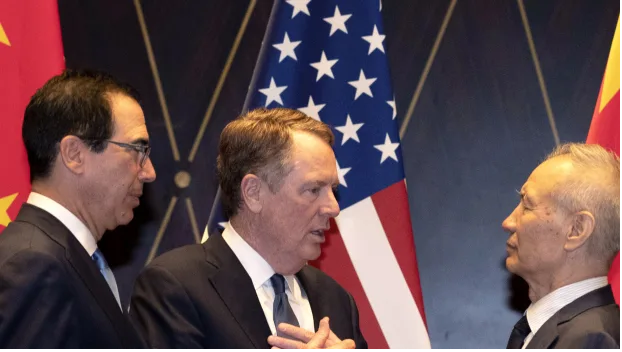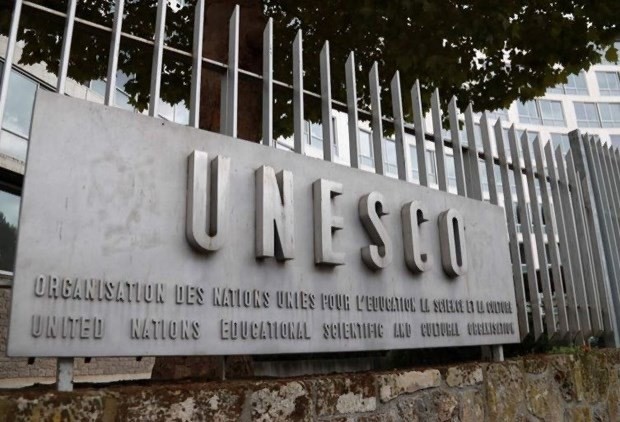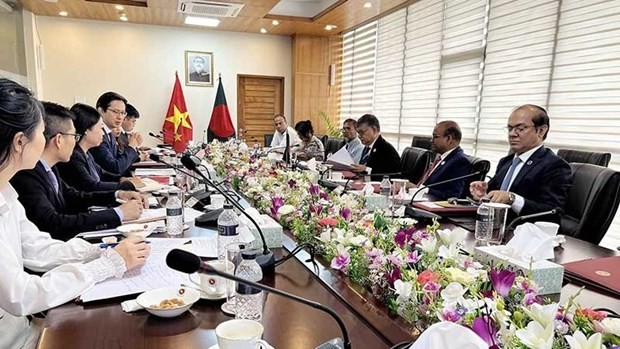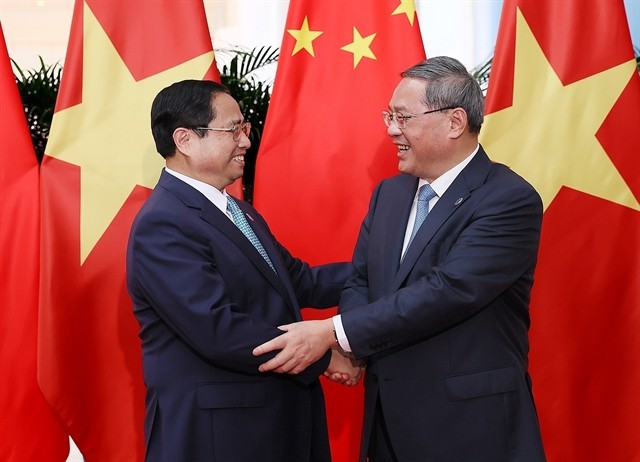China-U.S tension broadens, with no sign of relief
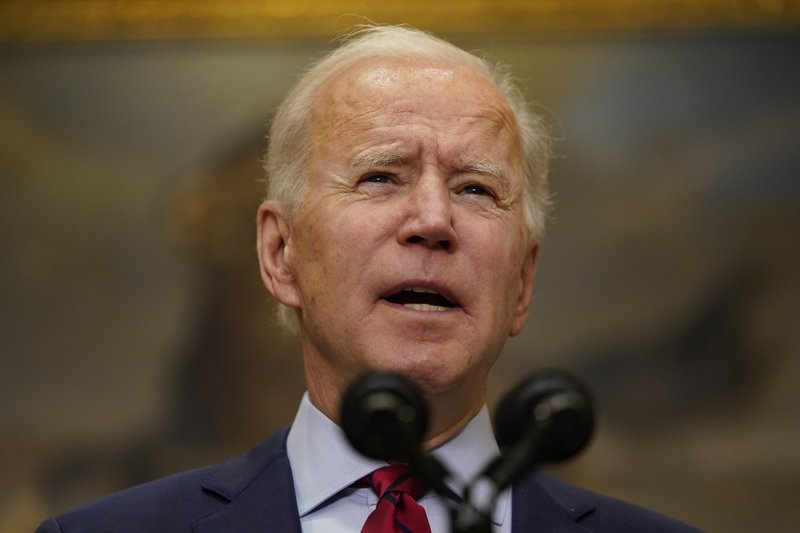 |
| In this Feb. 27, 2021, photo, President Joe Biden speaks on the economy in the Roosevelt Room of the White House in Washington. Biden took office promising to move quickly to restore and repair America’s relations with the rest of the world. Yet one major nation has yet to see any U.S. effort to improve ties, and that's China. (AP Photo/Pablo Martinez Monsivais) |
From Iran to Russia, Europe to Latin America, Biden has sought to cool tensions that rose during President Donald Trump’s four years in office. Yet, there have been no overtures to China, according to Associated Press.
Although the Biden administration has halted the ferocious rhetorical attacks and near daily announcements of new sanctions on China that had become commonplace under Trump, it has yet to back down on any of Trump’s actions against Beijing.
This persistent state of low-intensity hostility has profound implications. China and the United States are the world’s two largest economies and the two largest emitters of greenhouse gases. Their power struggle complicates global efforts to deal with climate change and recover from the devastating impact of the coronavirus pandemic.
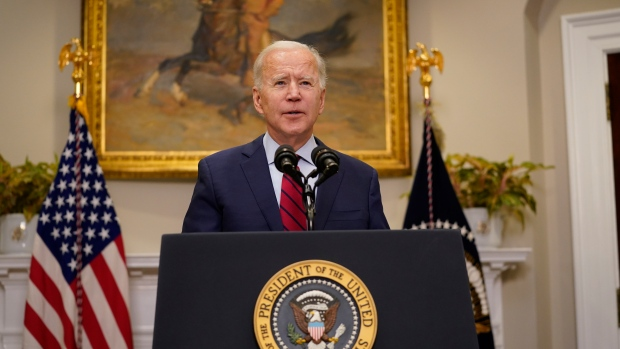 |
| President Joe Biden speaks on the economy in the Roosevelt Room of the White House, Saturday, Feb. 27, 2021, in Washington. (AP Photo/Pablo Martinez Monsivais) |
“Neither is prepared to back down”
Thus in their first month in office, Biden and Secretary of State Antony Blinken have reaffirmed many of the Trump administration’s most significant steps targeting China, including a determination that its crackdown on Uyghur Muslims and other minorities in western Xinjiang region constitutes a “genocide” and a flat-out rejection of nearly all of China’s maritime claims in the South China Sea.
Nor has the new administration signaled any let-up in Trump’s tariffs, restrictions on Chinese diplomats, journalists and academics in the U.S. or criticism of Chinese policies toward Tibet, Taiwan and Hong Kong. It’s also critical of Beijing’s attempts to further its increasing global influence through telecommunications technology, social media and educational and cultural exchanges, Associated Press reported.
Biden’s nominee to head the CIA, William Burns, was explicit about his concerns over many of these issues at his confirmation hearing Wednesday. And, the newly confirmed U.S. ambassador to the United Nations, Linda Thomas-Greenfield, made a point of highlighting her unease with the state of affairs and pledged to combat Chinese attempts to exert undue pressure on other countries at the U.N.
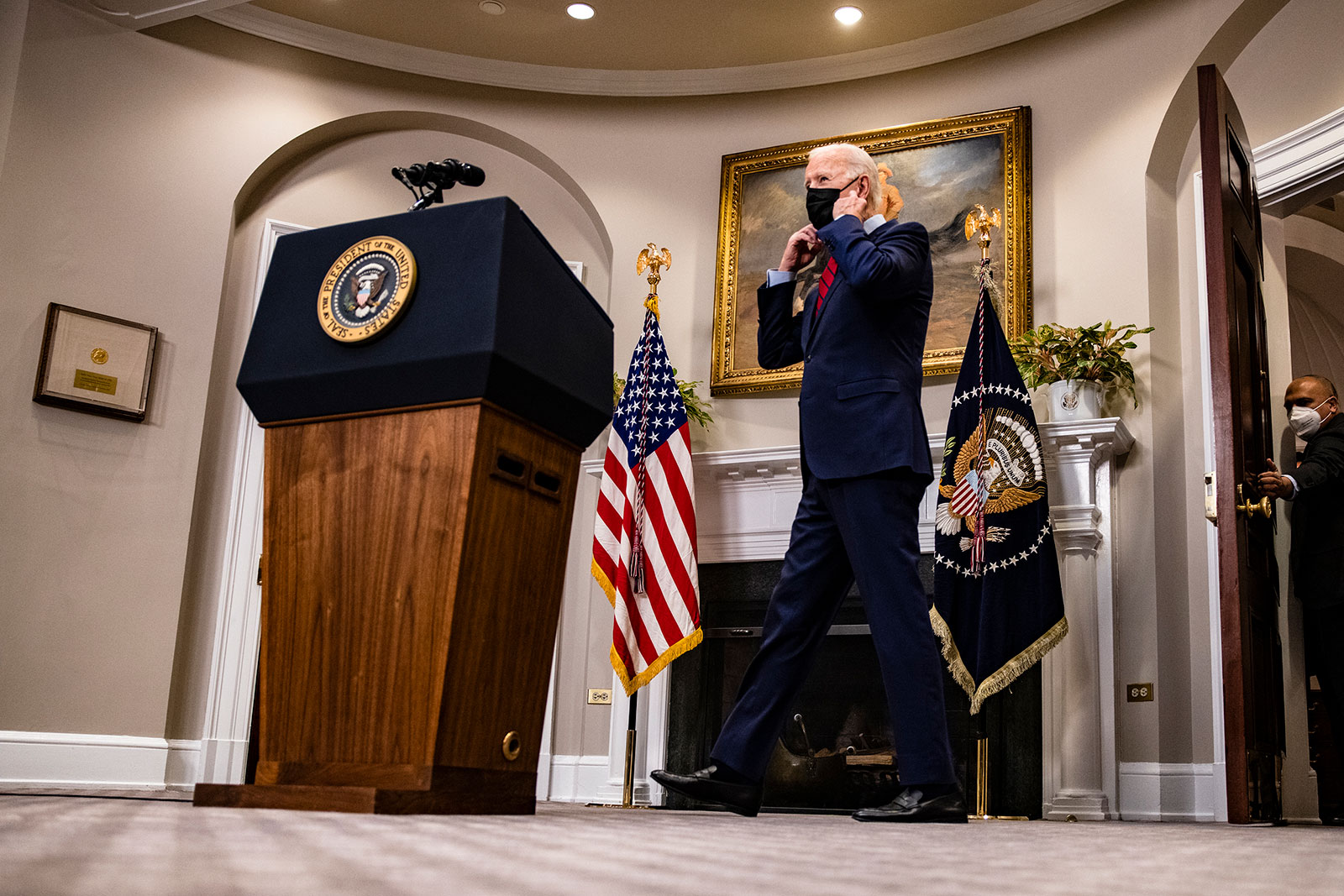 |
| Photo: Samuel Corum/Pool/Getty Images |
The backdrop is clear: The United States is convinced that it and China are engaged in a duel for global dominance. And neither is prepared to back down.
China’s top diplomat, Wang Yi, demanded that Biden’s administration lift restrictions on trade and people-to-people contacts and cease what Beijing considers unwarranted interference in the areas of Taiwan, Hong Kong, Xinjiang and Tibet.
Wang urged the U.S. to “stop smearing” the reputation of China’s ruling Communist Party. “We hope that the U.S. policy makers will keep pace with the times, see clearly the trend of the world, abandon biases, give up unwarranted suspicions and move to bring the China policy back to reason to ensure a healthy, steady development of China-U.S. relations,” he said.
At least some Asia hands in the United States see Biden as moving slowly toward potential reengagement with China in part because he wants to shore up his domestic position and make clear the U.S. is not a victim of Chinese predation.
“They are restraining themselves from the normal syndrome of a new administration running into problem-solving with China,” said Danny Russel, who was assistant secretary of state for Asia during the Obama administration and is now vice president of the Asia Society Policy Institute.
Russel said Biden is “sending out messages that have the effect of showing he’s not soft on China, that he’s not a patsy for China, that he isn’t so desperate for a breakthrough on climate change that he’s going to trade away our national security interests.”
Chinese academics see little difference in Biden’s approach.
“Continuity takes precedent over adjustment and change,” said Zhu Feng, professor of international relations at elite Nanjing University.
Biden will have to deal with a China that is far more powerful and influential than under past U.S. administrations, said Yu Wanli, a professor of international relations at Beijing Language and Culture University.
“There has been huge deviation between what they believe China is and what China really is,” Yu said. “Their China polices are based on illusions, which must result in some bad consequences. It takes time for them to come back to reality.”
Apart from its support for Taiwan, the U.S. views China’s policies in Hong Kong, Xinjiang and elsewhere as matters of human rights, whereas China sees them as questions of sovereignty, Yu said. “Frictions will still exist, and the pattern will still be the same.”
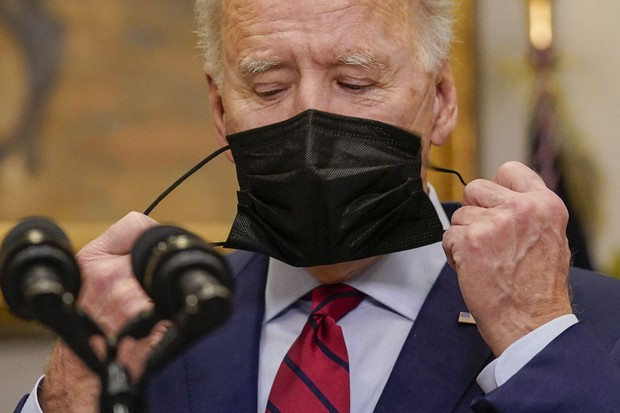 |
| President Joe Biden removes his mask before speaking on the economy in the Roosevelt Room of the White House, Saturday, Feb. 27, 2021, in Washington. (AP Photo/Pablo Martinez Monsivais) |
One of the top ten risks for 2021: U.S.-China tensions are broadening
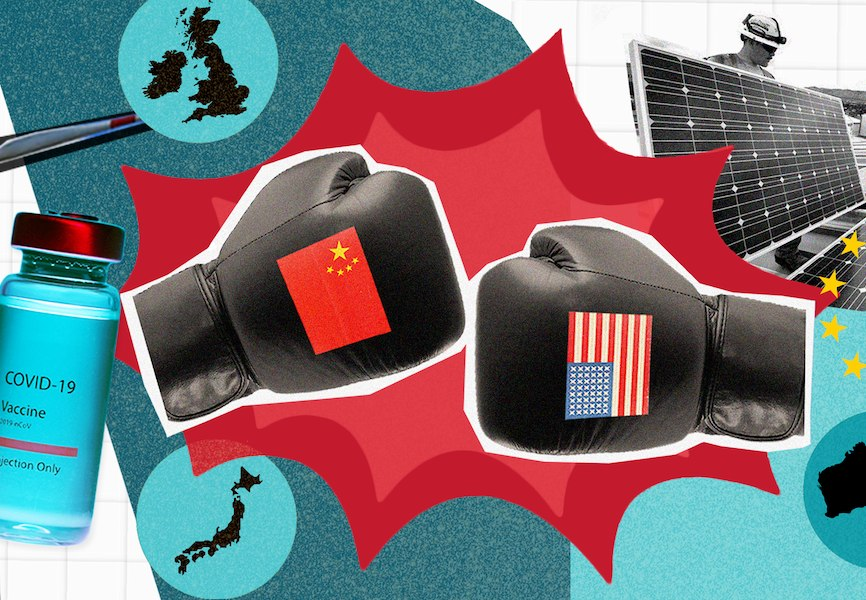 |
| Photo: Eurasia Group |
Competition between the U.S. and China could spill into new areas this year — further complicating a tense relationship that has threatened the global economy over the last few years, according to risk consultancy Eurasia Group.
Among the top ten risks for 2021 predicted by Eurasia Group is that U.S.-China tensions are broadening, according to CNBC.
One potential new source of friction is in “green” technologies, said Leon Levy, a senior analyst in the firm’s global macro practice.
That’s especially so since President-elect Joe Biden — who will be sworn in on Jan. 20 — has listed tackling climate change as one of his priorities, Levy told CNBC’s “Squawk Box Asia” on Tuesday.
“What we’re likely to see is more competition in green energy between the U.S. and China. And that’s just gonna open up a whole new front that we just haven’t really seen in the last four years under Trump,” he said.
China is currently a leader in the development of many clean energy and technologies — including batteries, solar and wind, Eurasia Group said in its annual “Top Risks” report published Monday. And Beijing has sought to score “public diplomacy points” and pull ahead of the U.S. by pledging to become carbon neutral by 2060, the report pointed out.
In contrast, the U.S. placed climate issues on the back burner under President Donald Trump, who pulled his country out of the Paris accord and has frequently dismissed concerns over climate change.
Biden, however, will be eager to catch up, the consultancy said.
The U.S. “will make major investments to re-shore portions of these clean energy supply chains back to the US, seek to shame Chinese coal investment abroad, and rally allies to pressure China on climate and clean energy issues,” said the report.
“China, for its part, has grown accustomed to its climate soft power boom during the Trump years and will not take this offensive lightly,” it added.
Overall, the U.S.-China rivalry — which worsened after Trump took office in 2017 — could be as intense as last year, even though the incoming Biden administration may offer both sides some breathing space, said Eurasia Group.
“US efforts to enlist allies, vaccine diplomacy, and climate tech competition will interact with longstanding tensions to further complicate US-China relations,” it said.
“Disagreements over bilateral trade and technology, the treatment of the Uighurs, Hong Kong, Taiwan, and the South China Sea will fully carry over into this year ... all of which will sustain a significant chance of miscalculation and escalation during a crisis,” the Eurasia said.
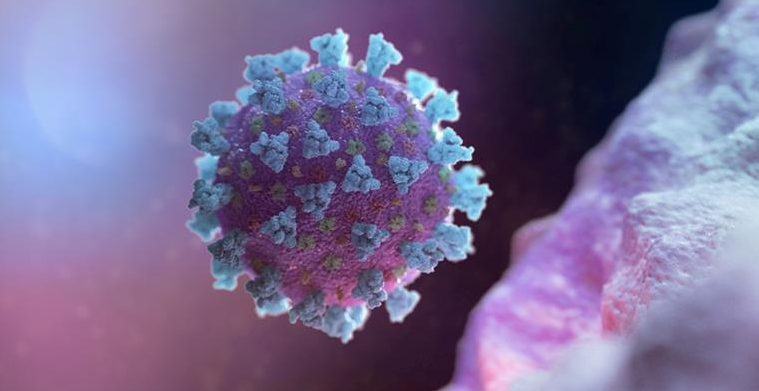 | Coronavirus updated in powers: China accuses US of spreading lies and conspiracy theories China's Foreign Minister Wang Yi accused the United States of spreading 'lies and conspiracy theories' about coronavirus and escalating tensions between the two nations. |
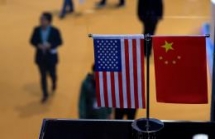 | China, US to have trade dialogues in October China and the US will meet and hold high – level trade dialogues in October in Washington as the Chinese commerce ministry’s announcement on Thursday. |
| China, US additional tariffs on each other's goods begin today China and the United States will begin imposing additional tariffs on each other's goods on Sep.1, the latest escalation in a bruising trade war. |
Recommended
 World
World
Pakistan NCRC report explores emerging child rights issues
 World
World
"India has right to defend herself against terror," says German Foreign Minister, endorses Op Sindoor
 World
World
‘We stand with India’: Japan, UAE back New Delhi over its global outreach against terror
 World
World
'Action Was Entirely Justifiable': Former US NSA John Bolton Backs India's Right After Pahalgam Attack
Popular article
 World
World
US, China Conclude Trade Talks with Positive Outcome
 World
World
Nifty, Sensex jumped more than 2% in opening as India-Pakistan tensions ease
 World
World
Easing of US-China Tariffs: Markets React Positively, Experts Remain Cautious
 World
World


